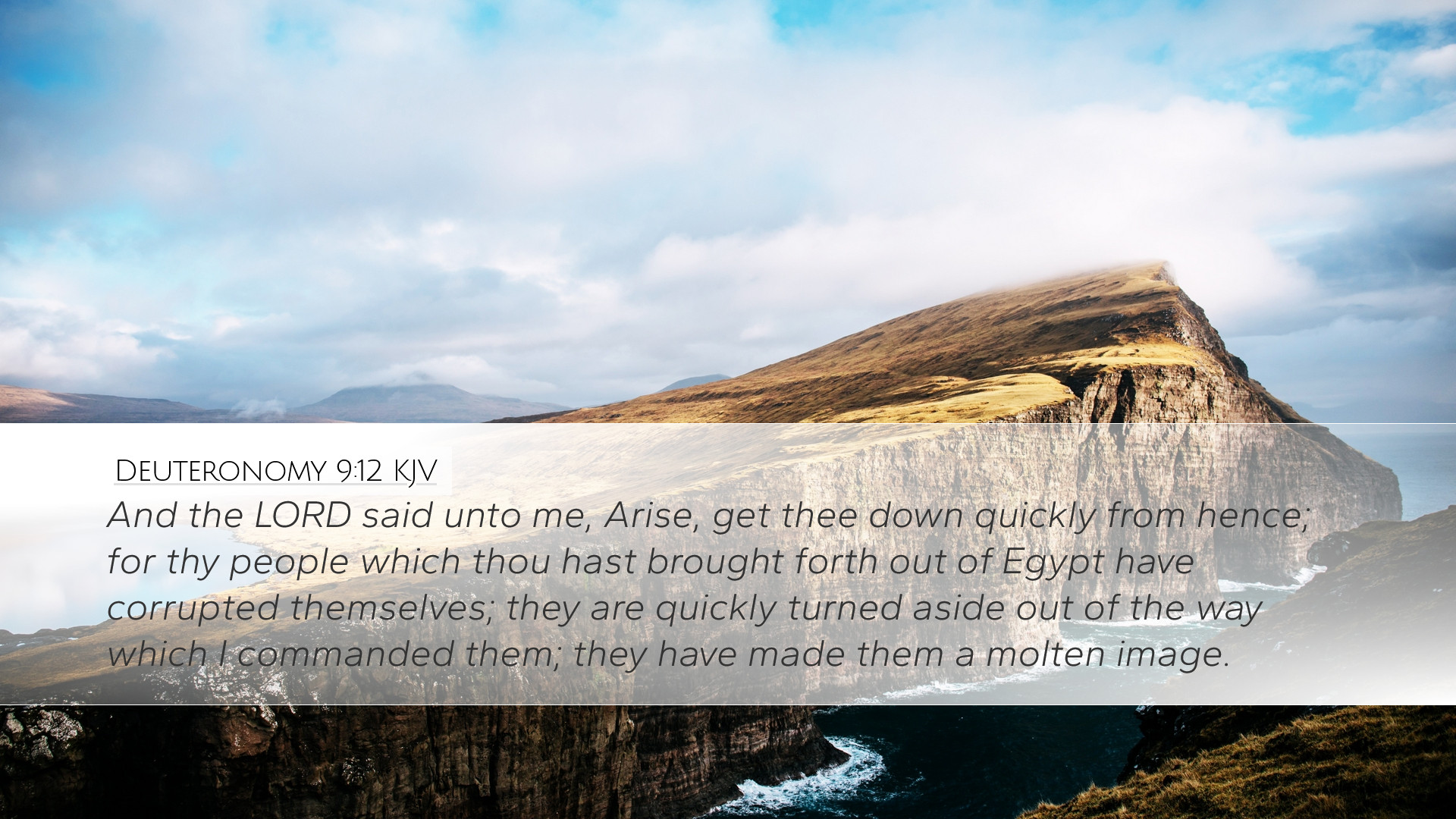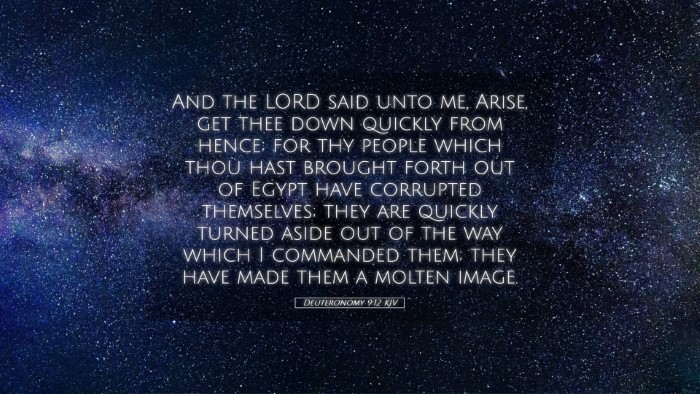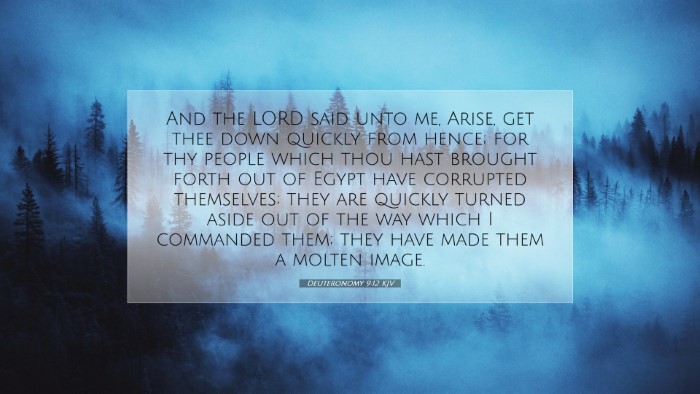Commentary on Deuteronomy 9:12
Bible Verse: Deuteronomy 9:12 - "Then the Lord said to me, 'Arise, go down quickly from here; for your people whom you brought out of Egypt have acted corruptly. They have quickly turned aside from the way which I commanded them; they have made themselves a molded image.'
Summary of Insights
This passage captures a significant moment in the narrative of the Israelites as they journey through the wilderness toward the Promised Land. It reflects the Lord's deep concern over the apostasy of His people and serves as a pivotal point in Moses' intercessory role. The following analysis synthesizes perspectives from notable public domain commentators.
Moses’ Urgency
Matthew Henry emphasizes the urgency conveyed in God's command to Moses. The Lord’s instruction to "arise" implies an immediate need for action, highlighting the gravity of the Israelites' sin. God's directive showcases His displeasure and serves as a call to Moses to witness the consequences of the people's rebellion. Henry states that this call reflects God's active sovereignty, as He guides and admonishes His leader during a period of crisis.
The People's Apostasy
Albert Barnes discusses the nature of the corruption among the Israelites. They quickly strayed from the path prescribed by God—evident in their creation of a "molded image." This idolatry starkly contrasts their liberation from Egyptian bondage, illustrating a failure to uphold the covenantal relationship established between God and His people. Barnes notes that the phrase "quickly turned aside" underscores the fleeting nature of their commitment to Yahweh and their readiness to revert to pagan practices.
The Image of God
Adam Clarke provides insight into the theological implications of making a molded image. He asserts that this act not only represented disobedience but also a fundamental misunderstanding of God's nature. The desire to create a tangible representation of the divine reveals the human inclination towards idolatry and the limitations in comprehending God's transcendent essence. Clarke emphasizes that this incident speaks to a broader truth regarding the human heart’s propensity to seek substitutes for God instead of worshipping Him in spirit and truth.
The Role of Intercession
Moses’ response in this narrative is critical. As the mediator between God and the people, his role becomes increasingly complex amid their rebellion. Matthew Henry notes that Moses' intercession not only illustrates his dedication to his role as leader but also highlights the character of God—willing to forgive but unwavering in justice. This episode serves as a precursor to Moses' later intercessory prayers where he pleads for the life of the nation.
Theological Reflections
In Deuteronomy 9:12, the themes of divine judgment, human rebellion, and the need for intercession converge. The commentary from these scholars encourages a deep reflection on several theological aspects:
- Divine Sovereignty: The command from God emphasizes His control and involvement in the affairs of His people.
- Human Fragility: The rapid inclination towards sin reflects the vulnerability of humanity despite previous experiences of divine deliverance.
- Idolatry’s Relevance: The concept of molding an image transcends the literal act; it speaks to modern challenges in faithfulness and authenticity in worship.
- The Necessity of Intercession: Moses’ role as a mediator emphasizes the importance of intercession in the relationship between God and humanity.
Practical Applications
The lessons from Deuteronomy 9:12 are rich with applications for contemporary faith communities. Key takeaways include:
- Awareness of Apostasy: Believers must remain vigilant against spiritual drift, maintaining fidelity to God's teachings.
- Encouragement of Genuine Worship: The call to worship must be rooted in a genuine relationship with God, rejecting the allure of idolatry in various forms.
- Value of Spiritual Leadership: The significance of leaders who intercede for their communities cannot be overstated; spiritual leaders should model how to approach God on behalf of others.
- Understanding God’s Character: This passage invites deeper exploration into God’s holiness and mercy, illuminating the necessity for repentance and renewal.
Conclusion
Deuteronomy 9:12 is a powerful reminder of the consequential nature of sin, the consistent faithfulness of God, and the critical need for intercessors within the faith community. Through the insights gained from Henry, Barnes, and Clarke, modern readers are invited to reflect on their relationship with God, the reality of human weakness, and the enduring call to worship Him authentically.


